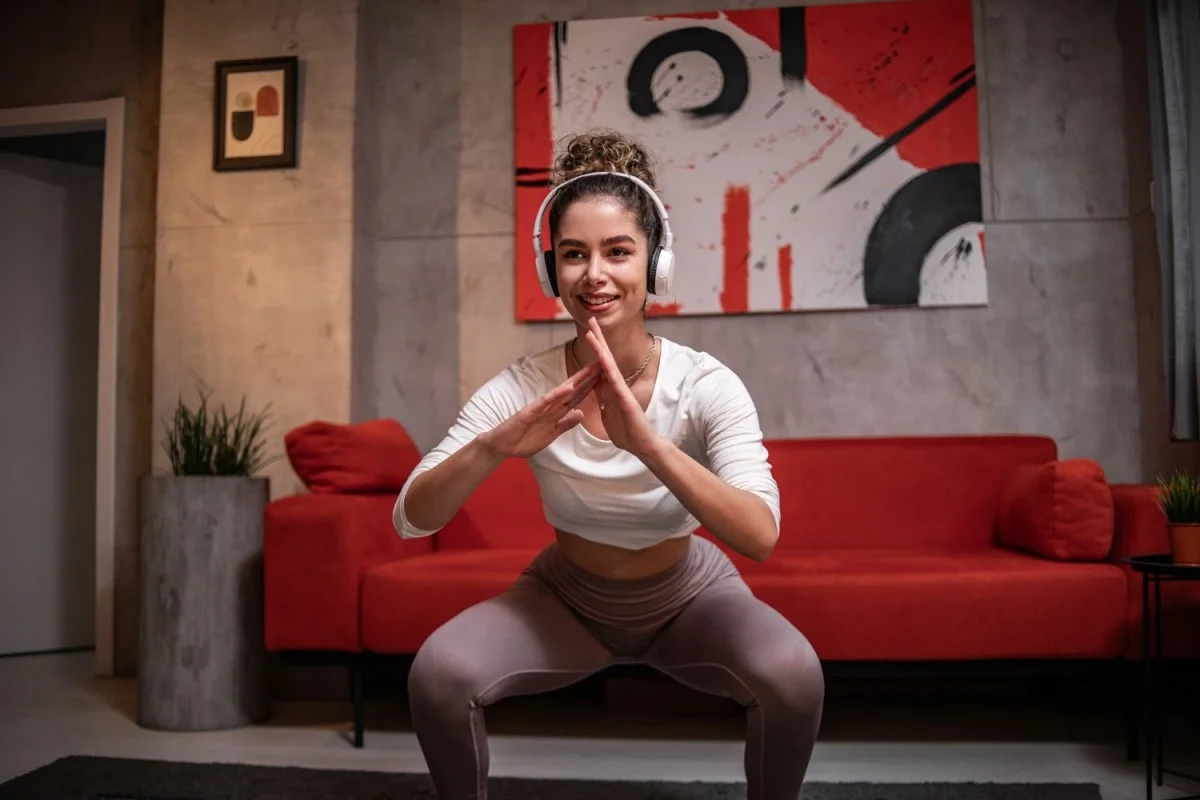28/09/2024
28/09/2024

NEW YORK, Sept 28: Restful sleep could be just a few squats away, according to new research published in BMJ Open Sport & Exercise Medicine. The study suggests that engaging in evening exercise can significantly promote better rest at night, particularly through short bouts of resistance or strength training, such as squats, calf raises, and standing knee raises.
The research involved a randomized trial with 28 participants who completed one of two four-hour sessions. In one session, participants remained seated for an extended period, while the other session incorporated regular breaks every half-hour for three minutes of bodyweight resistance exercises. The results indicated that these activity breaks led to an increase in average sleep period time and total sleep duration by nearly 30 minutes. However, the researchers from New Zealand did not find any significant effects on sleep efficiency, wake after sleep onset, or the number of times participants woke during the night.
The researchers concluded, "Performing bodyweight resistance exercise activity breaks in the evening has the potential to improve sleep period and total sleep time, and does not disrupt other aspects of sleep quality or subsequent 24-hour physical activity."
Dr. Wendy Troxel, a senior behavioral and social scientist at the Rand Corporation in Utah, expressed enthusiasm about the study's findings in an interview with Fox News Digital. She highlighted the significance of the research amid ongoing discussions about the optimal timing and intensity of exercise in relation to sleep. "These are very short bouts of relatively low-intensity physical activity that anyone could do in their evening hours," Troxel said, underlining the dangers associated with prolonged sedentary behavior.
Excessive sitting has been linked to several health risks, including a 30% increased mortality risk. Troxel noted that integrating small bouts of physical activity into the evening could provide substantial benefits for both sleep and overall health. "This suggests that just little bouts of physical activity in the evening hours, to get you off the couch and moving, could have benefits for your sleep and your health more globally," she added.
Celebrity personal trainer Kollins Ezekh from Los Angeles echoed these sentiments, confirming that evening exercise can help improve sleep quality by alleviating stress and anxiety. "Physical activity triggers the release of endorphins and serotonin, which naturally helps to calm the mind and body," Ezekh explained. He also mentioned that exercising before bedtime can lower the body's core temperature, signaling that it's time to rest.
Beyond enhancing sleep, Ezekh pointed out that evening exercise can also reduce stress levels, boost metabolism, and improve digestion. Troxel agreed, stating that short exercise breaks can effectively tire the body without causing pain or overstimulation, ultimately preparing both the body and mind for a restful night.
Engaging in physical activity can also help the brain differentiate between pre-bedtime activities and actual sleep time. Troxel elaborated, "If you're just sitting on the couch doing nothing for hours prior to bedtime, it's hard for the brain to distinguish, ‘OK, bed is the time for real rest and restoration.’"
To prevent overstimulation, Ezekh recommended focusing on low- to moderate-intensity exercises in the evening, such as yoga or Pilates, which emphasize mindful breathing, stretching, and relaxation. Light cardio activities, like brisk walking or easy cycling, can help expend energy without overly energizing the body before sleep. He also suggested bodyweight exercises, such as squats, lunges, or push-ups, as effective options.
Dr. Tina Sadarangani, a nurse practitioner and assistant professor at NYU College of Nursing, emphasized the importance of engaging in low-impact exercise, such as brisk walks, after dinner. "Whether you're old or young, we see benefits of exercise after dinner in particular," she stated, noting improvements in blood sugar stability, smoother digestion, and enhanced mood.
In addition to incorporating movement before bedtime, Sadarangani advised avoiding screen exposure and stimulants like caffeine, alcohol, and tobacco products. Creating a conducive environment for sleep is also essential for achieving a restful night, she added.
In conclusion, engaging in simple evening exercises could be a key to unlocking better sleep, improving overall health, and promoting a more active lifestyle. As research continues to illuminate the connection between physical activity and sleep quality, it becomes increasingly clear that even small adjustments to our evening routines can yield significant benefits.


